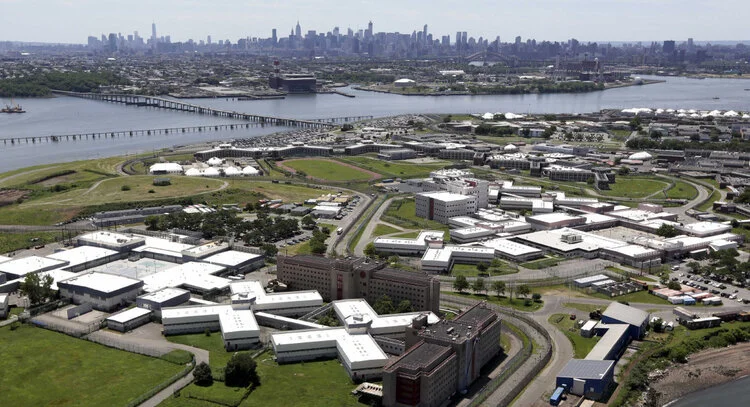Legal Aid files suits against DOC
/The Legal Aid Society has filed lawsuits against the DOC. AP Photo by Seth Wenig
By Rachel Vick
The Department of Correction is facing two new lawsuits in Queens County Supreme Court as public attorneys demand transparency as Rikers Island facilities remain under intense scrutiny.
The Legal Aid Society filed the suits, alleging that the DOC failed to share information about conditions inside Enhanced Supervision Housing units on high-heat days after the attorneys filed several Freedom of Information Law requests. The attorneys are asking the court to step in to ensure disclosure.
“Even on days when the weather is normal, those units are extremely problematic, very restrictive, very brutal,” said Robert M. Quackenbush of The Legal Aid Society’s Prisoners’ Rights Project. “This is the measure of us as humanity; how do we treat the people that society despises, and right now the department’s course of conduct towards this population, particularly on heat days, is brutal, backwards and antiquated.”
“Climate change moves slowly but it's moving a lot faster than the department is moving to protect our clients on high heat days — that’s an embarrassment,” he added. “It shows that the department is not serious about protecting that population.”
DOC allegedly failed to respond to the FOIL request within the 20-business-day period and then gave no confirmation about the status of the requested information on the conditions in ESH restrictive housing — which the lawsuit says is has “become known for its brutal conditions of confinement” — during the heatwave in late June.
The first lawsuit asks for basic information like the locations, capacity and cell makeup of ESH units, and the second is conditions under the first heat wave; temperatures inside units, information from logbooks meant to document ice distribution and copies of “security overrides” detailing reasons why incarcerated individuals susceptible to heat were kept in their cells.
“There are legitimate reasons people would [exercise their right to refuse] but over the years we've heard many, many times from people that they did not refuse but we get their paperwork and DOC says they refused,” Quackenbush said.
Filings reference harsh reports from the Board of Correction, which was similarly concerned about conditions in a currently closed facility on days where temperatures exceeded 85 degrees. In June of 2020 BOC found that a quarter of showers had temperatures above 100 degrees and in several facilities the coolest water temperatures were above 94 degrees.
Legal Aid says that they lack information about EHS units inside the George R. Vierno Center, which was used throughout the pandemic.
“We had a lot of information on what conditions in those facilities were… [people] being blocked in behind solid cell doors that blocked all air circulations, services DOC is supposed to provide on high heat days not being provided,” Quackenbush said. “They almost never do it in ESH with the excuse being that the individuals confined there are high security and it’s not safe to escort them to showers or open their doors to get ice.”
Heat protocols mimic the actions people at liberty would take to cool down on the hottest days, but Legal Aid is concerned that ESH detainees — mostly young adults for whom solitary was determined too detrimental for mental health — are not being offered even the basics.
Quackenbush said that the heat plan is reliant on the presence of correction officers — a factor of particular concern during a summer rampant with claims of absent staff and excessive lockdowns.
Cooldown showers for ESH blocks require captain escorts, and if there are not enough captains, there are no escorts, the attorneys said. Those kept in cells face elevated risks if there are not enough officers to go on rounds doing wellness checks, which Quackenbush said weren’t happening.
The lawsuit claims the DOC’s response “is the functional and legal equivalent of not responding at all,” and requested that the court order a response in 20 business days and award attorneys’ fees and costs.
The DOC maintains the requests have not been denied.
“We have received these FOIL requests and we are currently gathering and reviewing records for responsiveness,” a DOC spokesperson told the Eagle. “The challenges brought about by the Coronavirus pandemic have delayed this process to an extent, but these requests have not been denied.”




